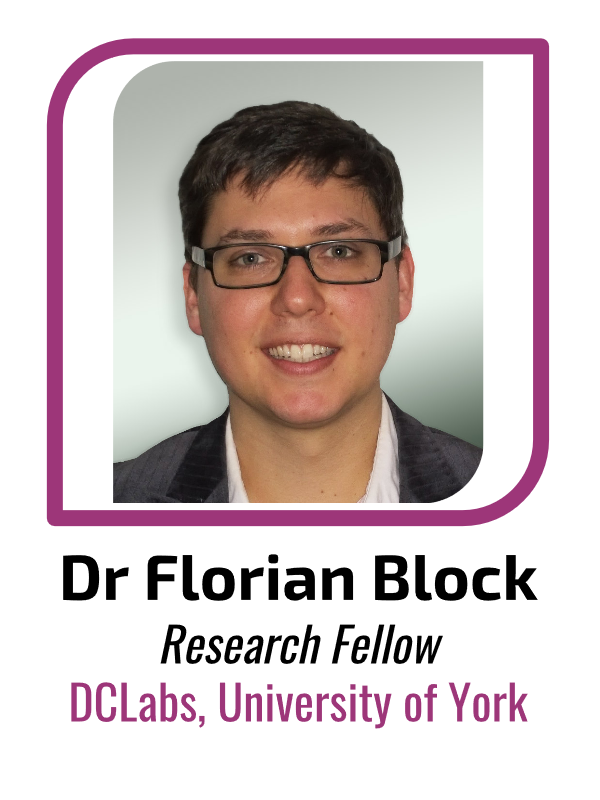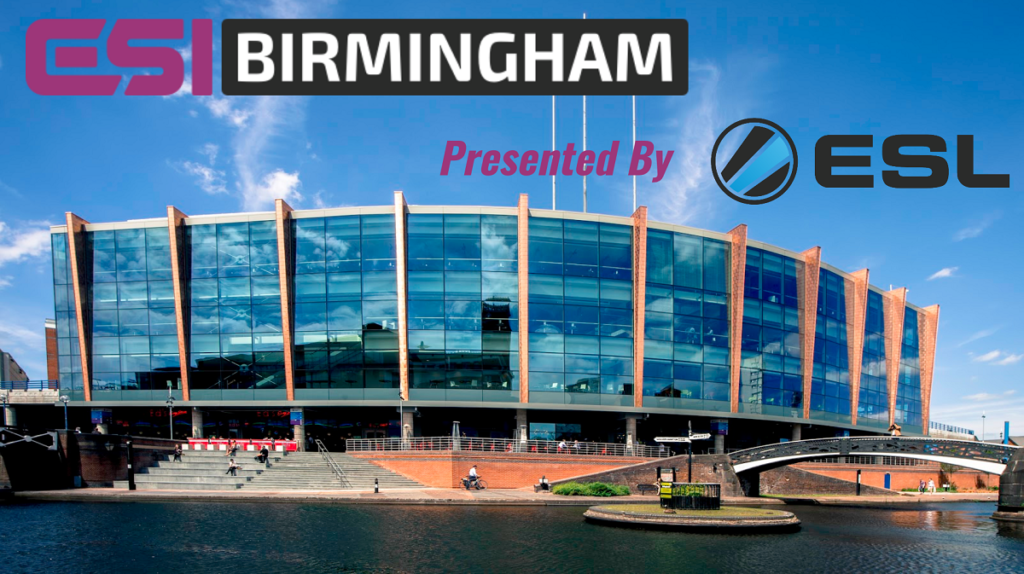Dr. Florian Block has been a Research Fellow in Interactive Media and Digital Creativity Labs at University of York since January 2016. As part of this appointment, Florian became a full-time Researcher at the Digital Creativity Hub.
Florian and the team at the Department of Theatre, Film and Television have made their first big move into esports with the fairly recent news that the University of York and ESL will be teaming up to introduce an esports content production at the University.
Florian will also be on the ‘UK Esports, a land of opportunity’ panel at ESI Birmingham on May 24th, where he will be joined by Roy Meredith, Senior Business Development Manager at West Midlands Growth Company and Ben Woodward, Co-founder of Code Red Esports.
We had a chance to chat with Florian ahead of ESI Birmingham, about what attracted the University to esports, why he choose ESI Birmingham to speak at and what he thinks other universities have to look forward to in esports.
Esports Insider: Start off by telling us a little about you and your work.
Florian Block: My PhD is in Human Computer Interaction – essentially trying to understand how we can improve the way we interact with all kinds of electronic devices, from PCs to mobile phones and tablets. But over the last decade, first at Harvard University and then at the University of York, my research has been more and more about using interactive technology and visualisation to help people extract insights from data.
I know it feels a bit “buzz-wordy”, but being able to work with data is so important in today’s society. It was ultimately data that got me interested in esports, which is full of high-quality data that actually contains very valuable information. In particular, I got interested in the creative use of data in esports – how content creators use data to tell stories about exciting performances.
Over the last two years, I have been privileged to lead the esports research team at the Digital Creativity Labs, where I am surrounded with amazing colleagues and sparky students from across User Experience Design, Data Visualisation, Artificial Intelligence, Game Analytics, Psychology, Sociology and Gamification.
Together, we have been exploring the value of data in esports thoroughly over the last two years and were lucky to work with many exciting people and entities in the esports industry. A personal highlight was the launch of our Echo tool at ESL One in Hamburg last year. Echo automatically compares real-time data with historic match data to detect extraordinary performances and provides a direct way of creating graphics for the audience. We have a lot more stuff in the pipeline that really excites us and that we will hopefully be able to share with the community soon.
ESI: The University of York has announced a partnership with ESL to ‘Pioneer education in esports content’ how did the deal come about and what does it mean for York University and any future esports endeavours?
Florian: As we were closely collaborating with ESL on various research projects it became evident that the industry was desperate for talent that understood broadcast, storytelling and games, but that no university offered a formalised pathway in this area.
I know there have been quite a few universities out there starting to offer esports courses, but at York, we have two excellent established programmes that bring us into a unique position to pioneer teaching in esports content production. The first is our BSc in Interactive Media, which has a strong component of digital games, equally involving design and technical aspects of creating interactive experiences, while at the same time considering the humanities, i.e. understanding games culture.
“A personal highlight was the launch of our Echo tool at ESL One in Hamburg last year. Echo automatically compares real-time data with historic match data to detect extraordinary performances and provides a direct way of creating graphics for the audience”
The second programme relevant to esports is our BSc in Film and TV Production, which, among many things, covers technical aspects of production, storytelling, and engaging audiences. So when we partnered with ESL, it came very naturally to create specialisations options that allow students from both programmes to join forces in the third year to get a solid head start if they want to pursue careers in the esports industry.
Everyone from ESL was amazing to work with in developing this module, and they will be actively involved in delivering the content – which is really exciting for our students. Also, the support and enthusiasm for this module by really prominent personalities in esports are amazing, so there will be some real gems in there!
ESI: What has attracted you and the team at York University to turn your attention to esports?
Florian: I have touched upon this in a previous response, but the Digital Creativity Labs are all about the convergence between digital games and interactive media – by that we mean that games feel increasingly more like interactive stories, and experiences around games are increasingly not just playing but watching and sharing.
“I feel really passionate about the UK as an innovation hub in esports, and think we have the perfect ingredients all across the UK to drive disruptive technology and new audience experiences in esports”
The esports industry is a poster child of this trend, and much of our research has applications in esports.
ESI: Many universities have started to welcome esports, do you foresee this trend continuing and what advice would you give to any university looking at esports?
Florian: I think it makes perfect sense that with a rapidly growing industry and the numerous highly skilled jobs they create, universities will develop more and more formalised paths in higher education. It is really our responsibility to build talent that is ready for an evolving job landscape, and the creative industries, in general, are a crucial part of the UK’s economy. So yes, I think there will be much more to come, and at the University of York, we will continue to develop our offering responsibly.
I think my biggest advice for universities getting into esports is to work closely with the industry, understand their needs, and make sure you create offerings that actually get students well-paying jobs. After all, it is our primary responsibility to give the students the best start in their professional career as we can. It doesn’t take much to create a buzzy module for the purpose of attracting students. But actually developing this module so that it is relevant, constantly up-to-date, reflects industry needs and gives your students an edge over their competition is really hard. We have worked two years our this module, making sure it aligns with industry needs while having a high academic standard.
“We teach our students broad skills that make them strong candidates for jobs across the creative industries and provide them with opportunities to specialise in esports in their final year.”
More crucially, we have decided to approach esports as a specialisation of much broader existing programmes, instead of creating a dedicated BSc or MSc. Even though the esports industry is growing, there are only a limited number of highly skilled jobs. It would be irresponsible for us to output hundreds of students each year who may not get a job in esports and are too specialised to find a good job in another area.
Instead, we teach our students broad skills that make them strong candidates for jobs across the creative industries and provide them with opportunities to specialise in esports in their final year. We think this is the responsible way forward, and best leverages the pedagogic strengths and research expertise we have here at the University of York and Digital Creativity Labs.

ESI: You are one of the people attending ESI Birmingham on May 24th, what made you choose that event?
Florian: I was very pleased to be asked to be asked to be on the panel on “UK Esports, a land of opportunity”.
I feel really passionate about the UK as an innovation hub in esports, and think we have the perfect ingredients all across the UK to drive disruptive technology and new audience experiences in esports. I am very much looking forward to ESI and meeting new people who share this passion.
ESI: What do you hope to achieve from your attendance at the event in Birmingham?
Florian: As part of our mission to drive world-leading research and teaching in esports it is crucial to be out there and understand the pains, opportunities and visions of the industry. I think I will learn a lot from ESI. At the same time, the Digital Creativity Labs are the biggest games research hub in the UK, and we always looking for new collaborations.
We have a great track-record of working with industry and pushing out cutting-edge technology into their products. We have only just scratched the surface of what Artificial Intelligence, Data-Driven Storytelling and Interactive Experiences can do to create new experiences for esports fans, and want to continue to push the envelope in this space. I am very much looking forward to making new connections.
ESI: Do you have any closing words?
Florian: Thanks for reaching out and inviting us to ESI – we are extremely pleased to be able to make a contribution. Esports really feels like a truly unique opportunity for academia and industry to join forces to shape how mainstream entertainment will look like in the next few decades. The last two years have been an amazing ride, and we look forward to working with the industry in the years to come!
You can keep up to date with Florian’s research over at his personal site and the University of York. You can also catch Florian speaking at ESI Birmingham from May 24th

